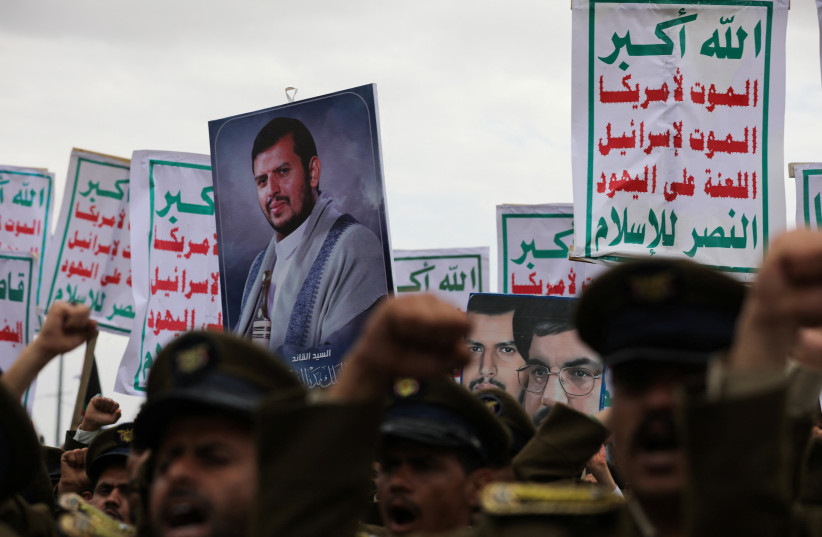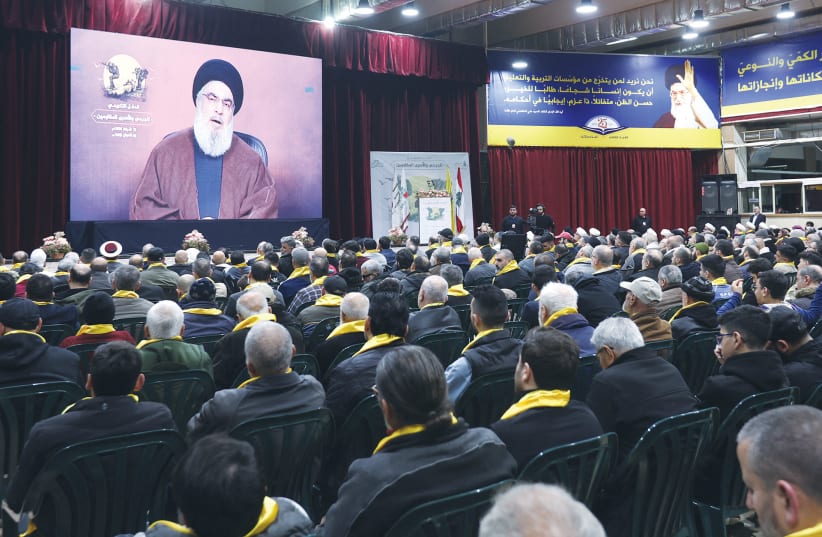The Middle East slumbers and awakens almost daily to video clips depicting militias and armed factions assaulting various targets. The attacks span from Israel to US bases in Iraq and Syria to merchant vessels traversing the Red Sea. The region has become a colossal geopolitical stage of turmoil that could detonate like a tinderbox at any moment.
A remarkable recent development in this context is the footage exhibited by the so-called Islamic Resistance in Iraq, a comprehensive coalition encompassing several Shia movements and groups. This footage illustrates the launching of two drones at US bases in Iraq and Syria.
The war media of these organizations have become a sensation of the current media scene by transforming drone launches into festive events aimed at diverse targets in a region marked by chaos and the absence of state sovereignty. One of the main causes of this turmoil, as we as observers have repeatedly cautioned, is the frailty of nation-states in the Middle East. This chronic affliction is a major factor in the daily practices that are driving the region to the edge of the abyss.
Tehran's outreach in the region
Certainly, the fate of the entire Middle East cannot be entrusted to militias whose patrons pursue plausible deniability. In this context, we draw attention to Iran’s repeated official statements that Tehran is not accountable for the actions of the groups and factions scattered throughout the region. According to these statements, these armed groups do not receive orders from Iran. Even if we hypothetically consider the veracity of these statements, the situation becomes even more enigmatic and obscure.
A joint international operational effort is needed to defeat these groups and completely eliminate their menace. Achieving this goal within the desired time frame may prove arduous due to the burgeoning weapons capabilities of some terrorist groups, such as Lebanon’s Hezbollah and, to a lesser extent, the Houthi group in Yemen.


There is no doubt that the international community as a whole is paying the price for its silence in the face of what it perceives as an escalation of the threat in recent years. Despite repeated warnings from many in the region, all of them, led by the US, have prioritized short-term tactical objectives over long-term goals of security and stability.All in all, there is no point in crying over spilled milk.
Everyone must come to terms with the alarming strategic reality represented by the ferocity of the armed groups. These groups have formed something like a strategic alliance and do not hesitate to support each other explicitly.
This is taking place against the backdrop of an American disregard for what is happening in the Middle East and a catastrophic underestimation of the potential consequences due to the excessive US focus on countering the strategic challenge posed by China.
This attention has reached the point that the Speaker of the US House of Representatives, Mike Johnson, described it as the Biden administration’s appeasement strategy towards Iran. This has led to an undermining of regional stability, Johnson said, calling on the US president to wake up and recognize the failure of this policy.
IS IT UNDERSTANDABLE that US forces in the Middle East have been subjected to some 165 attacks by militias and armed groups in Iraq and Syria since October 2023, that is, within four months? This has recently been compounded by the Houthis, who have been carrying out missile and drone attacks on American ships.
Is it conceivable that the world’s superpower is fighting so fiercely just to prevent terrorist militias from targeting its soldiers, ships, and interests?
America's options
The bad news is that the time is not favorable for efforts to combat these militias, at least not in the current year until the stages of the US presidential election are complete. Moreover, the White House’s decisions appear to hinge on more than just the impact on the electoral process and President Biden’s chances for a second term. Reports cite the assessments of some Western experts on Iran’s nuclear capabilities, including David Albright, a former weapons inspector in Iraq, who stated that a nuclear-armed Iran would need less than a week to produce a nuclear weapon once Iran’s Supreme Leader, Ali Khamenei, issues an order.
In view of the constant attacks on its bases in the region, the US naturally fears a scenario similar to the withdrawal from Afghanistan. Washington does not want to repeat the withdrawal of its troops from the Middle East in the same way, especially given the growing threat that Israel is currently facing.
Militias are generally nothing but a symptom of a serious disease. Military strikes directed against them bear no fruit because the sponsors of these groups do not care about the human and material losses in their ranks, even if they are completely destroyed. Guerrilla power trips ruin any vision of security and stability in the Middle East.
What is happening in Gaza, in the Strait of Bab-el-Mandeb, and elsewhere is only a consequence of the silence about an armed militia epidemic capable of thwarting all calculations by intervening in crises and provoking religious conflicts that threaten to spill over beyond the Middle East.
The real challenge in the region is not only the dismantling of certain terrorist organizations and armed movements but also the long-championed complete militia eradication. The proliferation of militias in some parts of the region gives rise to copycat movements. Their survival, persistence, and involvement in crises have put the region at risk of sinking into chaos, making it nearly pointless to talk about stability, security, and a common destiny.
The writer is a UAE political analyst and a former Federal National Council candidate.
